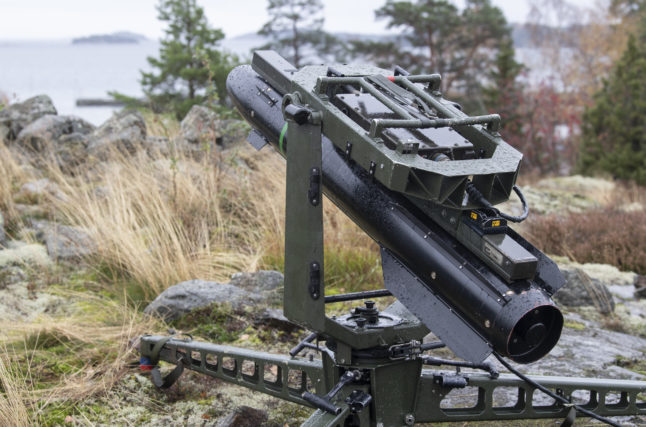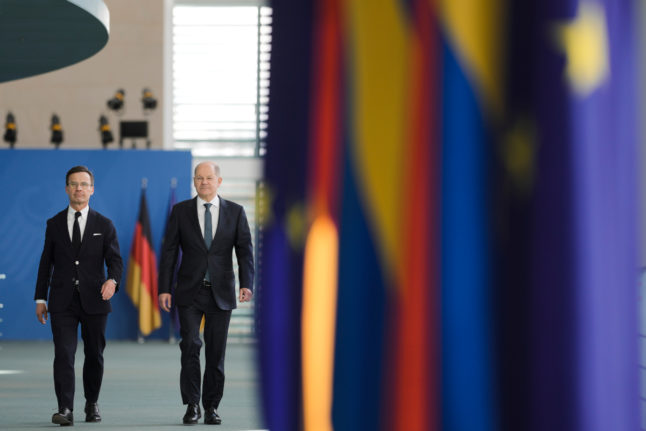“We are now seeing a new phase in the Russian invasion, where (Russia) is gathering strength in eastern and southeastern Ukraine and the Ukrainian side has requested help in several areas,” Defence Minister Peter Hultqvist told reporters at a joint press conference with Finance Minister Mikael Damberg.
Damberg said the Scandinavian country would contribute 578 million kronor to the Ukrainian central bank’s fund for its armed forces, 60 million kronor to Nato’s fund to help Ukraine’s armed forces, and military equipment worth 262 million kronor.
In addition, Sweden will contribute 100 million kronor for civilian efforts through the Swedish Civil Contingencies Agency.
According to a press release, the military materiel consists of Sweden’s anti-ship missile system Robot 17, which is a modified version of the US Hellfire missile system, as well as 5,000 anti-tank launchers and AG 90 assault rifles and ammunition.
“This is qualified equipment in line with what Ukraine has requested”, Hultqvist said.
In late February, Sweden broke its doctrine of not sending weapons to countries in active conflict for the first time since 1939, announcing 400 million kronor worth of military materiel and the donation of 500 million kronor to the Ukrainian central bank’s fund for its armed forces.
Sweden, along with neighbouring Finland, in May overturned decades of military non-alignment by submitting historic joint applications to join Nato, as support for membership soared in both countries after Russia’s invasion of Ukraine.



 Please whitelist us to continue reading.
Please whitelist us to continue reading.
Member comments